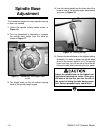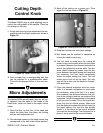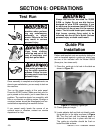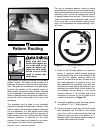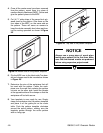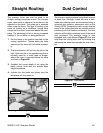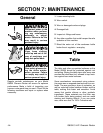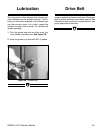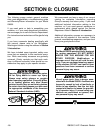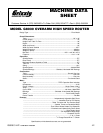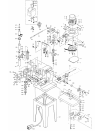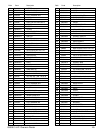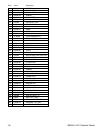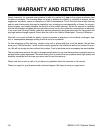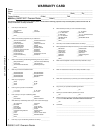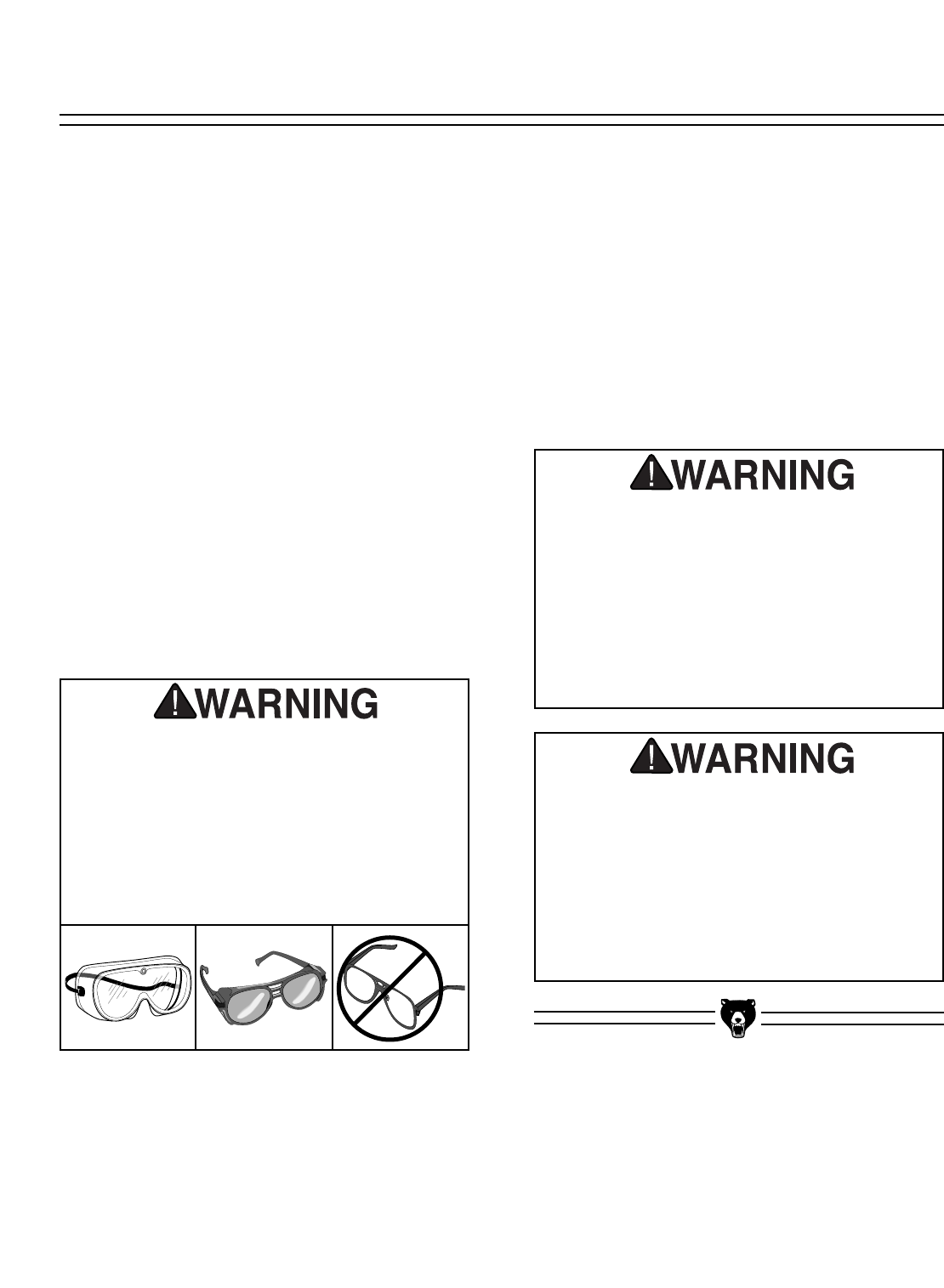
-26-
G8030 3 H.P. Overarm Router
The following pages contain general machine
data, parts diagrams/lists, a troubleshooting guide
and Warranty/Return information for your Model
G8030.
If you need parts or help in assembling your
machine, or if you need operational information,
we encourage you to call our Service Department.
Our trained service technicians will be glad to help
you.
If you have comments dealing specifically with
this manual, please write to our Bellingham,
Washington location using the address in Section
3 Introduction.
We have included some important safety mea-
sures that are essential to this machine’s opera-
tion. While most safety measures are generally
universal, Grizzly reminds you that each work-
shop is different and safety rules should be con-
sidered as they apply to your specific situation.
We recommend you keep a copy of our current
catalog for complete information regarding
Grizzly's warranty and return policy. If you need
additional technical information relating to this
machine, or if you need general assistance or
replacement parts, please contact the Service
Department listed in Section 3 Introduction.
Additional information sources are necessary to
realize the full potential of this machine. Trade
journals, woodworking magazines, and your local
library are good places to start.
SECTION 8: CLOSURE
The Model G8030 was specifically designed
for routing operations. DO NOT MODIFY
AND/OR USE THIS MACHINE FOR ANY
OTHER PURPOSE. Modifications or
improper use of this tool will void the war-
ranty. If you are confused about any aspect
of this machine, DO NOT use it until all your
questions have been answered or serious
personal injury may occur.
Like all power tools, there is danger asso-
ciated with the Model G8030. Accidents are
frequently caused by lack of familiarity or
failure to pay attention. Use this tool with
respect and caution to lessen the possibil-
ity of operator injury. If normal safety pre-
cautions are overlooked or ignored, seri-
ous personal injury may occur.
Operating this equipment creates the poten-
tial for flying debris to cause eye injury.
Always wear safety glasses or goggles
when operating equipment. Everyday glass-
es or reading glasses only have impact
resistant lenses, they are not safety glasses.
Be certain the safety glasses you wear meet
the appropriate standards of the American
National Standards Institute (ANSI).



